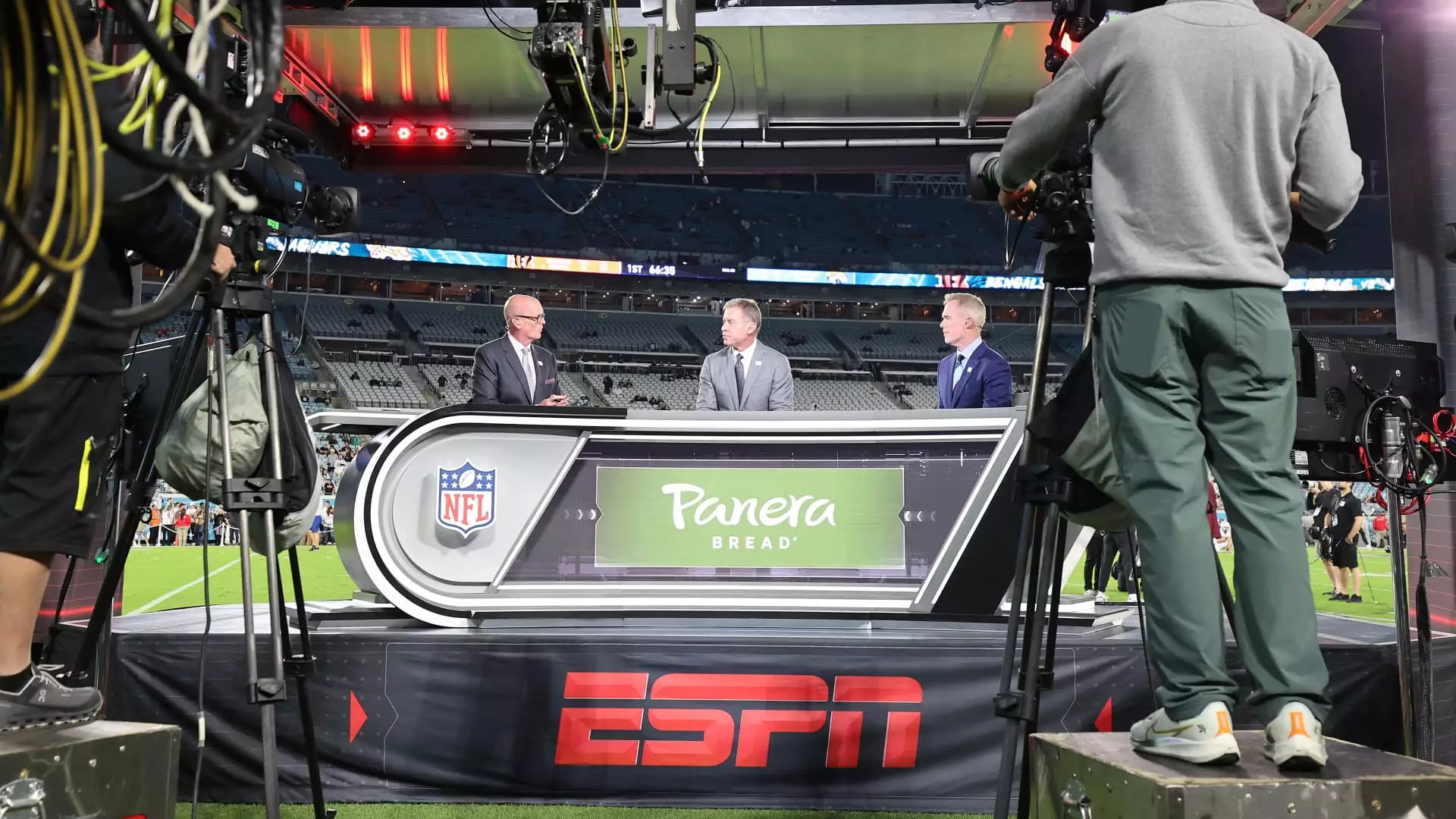In a recent carriage dispute between DirecTV and Disney, millions of DirecTV customers may find themselves unable to watch the NFL’s opening “Monday Night Football” game on ESPN. The two companies have failed to reach a deal as of Monday evening, leaving several Disney-owned networks, including ESPN, FX, and ABC, inaccessible to DirecTV customers. The dispute stems from a battle over fees and bundling, with DirecTV advocating for genre-specific bundles while Disney has refused to comply.
As a result of the ongoing dispute, DirecTV customers have already missed out on key sporting events such as the U.S. Open and the first full weekend of the college football season. Given that live sports continue to attract significant audiences, the lack of access to ESPN and other sports channels can be a major inconvenience for sports fans. Moreover, in a landscape where streaming services are gaining popularity, the loss of sports content could lead more customers to abandon traditional pay-TV bundles in favor of streaming platforms.
The Legal and Regulatory Standpoint
The battle between DirecTV and Disney has escalated to the point of legal intervention, with DirecTV filing a complaint with the Federal Communications Commission against Disney. DirecTV has accused Disney of failing to negotiate in good faith and has raised concerns about Disney’s anticompetitive demands. On the other hand, Disney has maintained that it is open to offering flexibility to DirecTV but is unwilling to undervalue its portfolio of television channels and programs. The legal wrangling between the two companies highlights the regulatory challenges in the media industry.
Historically, carriage disputes in the media industry have often been resolved at the eleventh hour, with the looming threat of blackouts pushing companies to reach a compromise. The case of Charter Communications and Disney last year serves as a pertinent example, where a similar dispute was resolved just hours ahead of a crucial football game. Companies have resorted to innovative solutions, such as providing access to streaming services, to appease customers and prevent disruptions to their viewing experience.
Ultimately, the fallout from the DirecTV and Disney dispute highlights the challenges faced by customers in a rapidly evolving media landscape. As companies vie for market share and seek to maximize profits, customers often find themselves caught in the crossfire. The inability to access popular channels and sporting events underscores the need for greater transparency and accountability from companies involved in carriage battles. As customers increasingly turn to streaming services for their content needs, traditional pay-TV providers must adapt to changing consumer preferences to remain relevant in the digital age.
Overall, the DirecTV and Disney carriage battle serves as a cautionary tale for the media industry, underscoring the need for collaboration and compromise in an era of heightened competition and technological innovation. As the standoff between the two companies continues, customers are left in limbo, highlighting the importance of customer-centric solutions and regulatory oversight to protect consumer interests. In a landscape where content is king, companies must prioritize the needs of their customers to ensure a seamless and engaging viewing experience for all.

